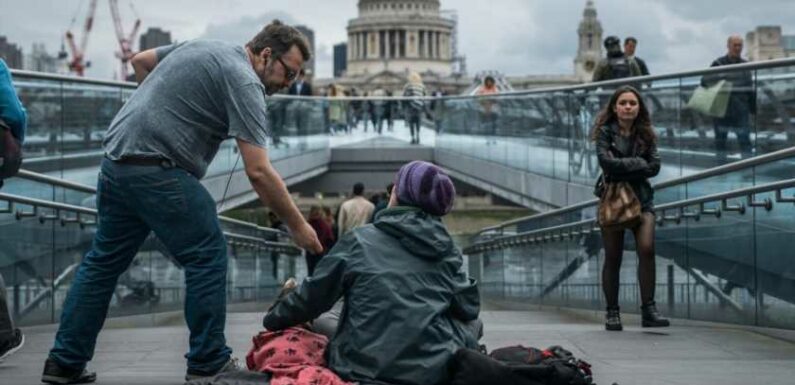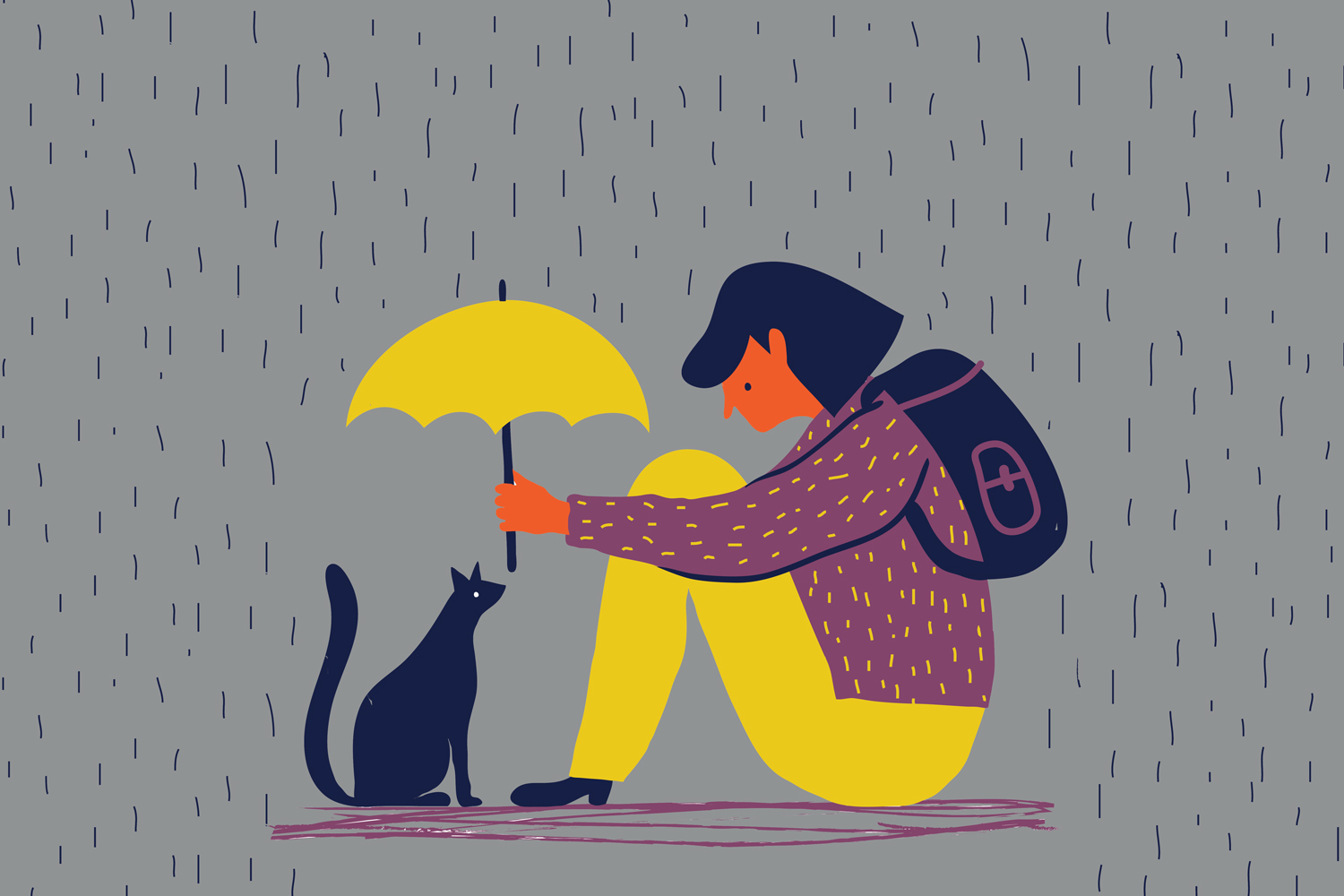
As temperatures become dangerously low this December, here’s how to provide support to a person who is homeless in the cold weather.
For the last five years’ core homelessness has been rising year on year in the UK. From the pandemic to the cost of living crisis, charities like Crisis and Shelter have seen a dramatic increase inrough sleeping, people living in sheds, garages and other unconventional buildings, sofa surfing, hostels and unsuitable temporary accommodation such as B&Bs.
On any given night, tens of thousands of families and individuals experience the worst forms of homelessness, including over 200,000 households in England alone. It’s a grim reality all year round, but particularly during the colder months of November, December and January, when rough sleepers are increasingly at risk of hypothermia and even death.
As a further spell of cold weather below 0°C approaches, Mayor of London Sadiq Khan has activated an emergency protocol for the first time this winter to protect people who are homeless. The activation of the all-London Severe Weather Emergency Protocol (SWEP) means councils across London will open additional emergency accommodation for rough sleepers.
With homelessness charities involved too, it aims to save lives as the cold weather could be fatal for those on the streets. It also means that no one will be asked to leave accommodation until a support plan is in place to end their rough sleeping, regardless of a change in temperature.
How to help the homeless in cold weather
Seeing someone sleeping on the streets can be desperately worrying. While many of us want to help, we can sometimes be at a loss as to how. With this in mind, we’ve answered some of the most common concerns attached to helping a person who is homeless, and consulted some of the UK’s homeless charities to get advice on how to help someone sleeping rough.
Report their location to StreetLink
StreetLink is a website, mobile app and phone line that allows you to alert local authorities to the whereabouts of a rough sleeper, so they can deploy street outreach services to help. The service is available in England and Wales and requires you to give as much detail about the location and person you have seen as possible, so that the outreach team can find them.
Outreach teams go on patrol three times every seven to 10 days, on average. They visit rough sleeping spots in the early hours of the morning and follow StreetLink alerts to find people in need of help.
The team will undertake an assessment and work with the individual to look at solutions to try and end their rough sleeping; one of these options might be temporary accommodation. However, this work can sometimes take time, meaning that you might not see a change in the person’s situation straight away, although support is being offered.
Petra Salva, director of outreach services at St Mungo’s, says: “We will be working day and night to help get as many people inside as possible. Rough sleeping is harmful and dangerous but when temperatures drop, lives are at risk.
“Health problems connected to continued exposure to the freezing cold, including hypothermia, exacerbate people’s already poor physical and mental health. It’s vital that we get help to people quickly so we can save lives but also in the longer term, find people permanent accommodation and the space to recover.
“If you are concerned about someone sleeping rough, I would urge you to get in touch via the StreetLink website, streetlink.org.uk, to help connect someone with their local service as soon as possible.”
Download the app here or call 0300 500 0914 to easily alert the StreetLink team.
Should you buy food for a person who is homeless?
St Mungo’s reports that most major cities have services that provide food to people who are hungry, such as day centres or food banks, although they do not discourage buying food for someone if you want to.
However, what the organisation sees as more important is speaking to the person, making a connection with them and listening to their story to see if there’s a greater way you can help. The charity advises that the best thing you can do is “talk to the person, listen to them and ask if they’d like anything other than money, such as support away from the streets”.
Should you give money to a person who is homeless?
Although this decision is down to your personal discretion, the advice from most charities is not to give money to people who are homeless.
A representative from homeless charity St Mungo’s explains that there’s a difference between begging and rough sleeping, and that “from listening to the people we work with, and our staff and sector partners, the feedback is that some people beg because they have no access to benefits or a wage and are destitute”.
The representative feels that in some cases, “it could be that [the person] has somewhere indoors to sleep, but needs money to pay for other things, including drugs or alcohol”.
Instead, you may want to donate to a charity that helps those without a home. One thing that is advised, though, is to acknowledge the person asking for assistance or money. Whether it’s a simple, “No, sorry,” or a smile and a nod, treating them with dignity and registering their request gives them the respect that we all deserve.
Donate money to a homeless charity
If you want to give money to a cause that’s helping to end homelessness, there are a few to choose from. And from monthly donations to a one-off payment, there are many ways to go about it.
Here are a couple of charities and donation schemes to get you started:
- St Mungo’s allows you to donate straight from your salary, before tax. You can also give one-off or regular donations or donate by post or over the phone
- You can invest in a Crisis investment unit. You can also donate from your salary or online, over the phone or in the post
- Shelter allows you to do monthly or one-off donations from its website, as well as donate by post, phone, or through your payroll
Help a rough sleeper find the nearest hostel or emergency shelter
There are numerous accommodation options available to rough sleepers: some are free, and some may charge anywhere between £2-20 a night. These hostels tend to be oversubscribed but, when the colder weather hits, emergency centres also try to house as many vulnerable people as possible.
If you speak to a person who is homeless who is looking for somewhere to stay that evening, it can be helpful to know how to quickly access hostel information. Homeless.org has a search engine that brings up all the different types of accommodation open to people who are homeless, up and down the country, from short to long-term facilities. The results also clearly explain which hostels need 24 hours’ notice or photographic ID as a prerequisite for those staying.
Remember: however you feel comfortable helping a rough sleeper is up to you. You can see more ways of supporting the homeless, such as volunteering and campaigning, over on St Mungo’s website here.
Images: Getty/Unsplash
Source: Read Full Article
